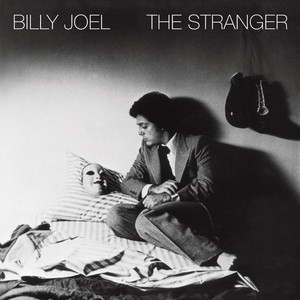By 1977, Billy Joel was at a crossroads. After the modest success of Piano Man and the commercial disappointment of Turnstiles, he was under pressure to deliver a hit—or risk being dropped by Columbia Records. What happened next was nothing short of legendary. The Stranger became one of the best-selling albums of all time, packed with unforgettable songs like Movin’ Out (Anthony’s Song), Scenes from an Italian Restaurant, Only the Good Die Young, and Just the Way You Are. With Phil Ramone at the helm as producer, Joel finally found the right mix of raw energy and polished production. But behind this album’s massive success lie some little-known stories that even longtime fans may not know.
1. The Beatles’ Producer Rejected Billy Joel’s Band
When Joel was looking for a producer for The Stranger, he initially reached out to the legendary George Martin, who had famously shaped The Beatles’ sound. Martin was interested—but on one condition: Joel had to ditch his touring band and use session musicians instead. For Joel, that was a dealbreaker. He believed in the chemistry of his band, featuring drummer Liberty DeVitto, bassist Doug Stegmeyer, and multi-instrumentalist Richie Cannata. Enter Phil Ramone, who embraced Joel’s vision, allowing the band to play on the album and ultimately shaping its distinctive sound.
2. The Title Track’s Iconic Whistling Was Almost Left Out
The Stranger opens with an eerie, unforgettable whistle, setting the mood for the album’s title track. But that whistling almost didn’t make the cut. Joel initially used it as a placeholder while figuring out what instrument should play the melody. It was producer Phil Ramone who convinced him to keep it in, believing its raw simplicity added to the song’s mystique. It turned out to be one of the album’s most memorable elements, proving that sometimes, the simplest ideas are the most powerful.
3. “Only the Good Die Young” Wasn’t a Hit—Until It Got Banned
One of The Stranger’s most famous songs, Only the Good Die Young, sparked controversy upon its release. The song, which tells the story of a Catholic boy trying to convince a Catholic girl to give in to temptation, led to protests from religious groups. Several radio stations banned it, which, in a classic case of unintended consequences, only made it more popular. According to Joel, sales of the single were sluggish at first, but as soon as the controversy hit, it skyrocketed on the charts. He later joked, “The minute they banned it, the album started shooting up the charts.”
4. “Scenes from an Italian Restaurant” Was Three Songs in One
This fan-favorite epic started as three completely separate songs. One was a ballad, another was a mid-tempo groove, and the last was an upbeat rocker. But rather than let them go to waste, Joel combined them into one, inspired by the second side of Abbey Road and Queen’s Bohemian Rhapsody. The result? One of the most beloved songs in his catalog. The restaurant setting was inspired by Fontana di Trevi, an Italian eatery near Carnegie Hall where Joel had dined while recording the album.
5. Billy Joel Almost Left “Just the Way You Are” Off the Album
It’s hard to imagine The Stranger without Just the Way You Are, but Joel almost cut it entirely. The song—written for his then-wife, Elizabeth Weber—was deemed too soft and sentimental compared to the rest of the album. Joel didn’t think it fit. But when Linda Ronstadt and Phoebe Snow heard it during a studio session, they insisted he keep it. Good thing he listened—Just the Way You Are went on to win two Grammys for Record of the Year and Song of the Year, becoming one of his most enduring hits.
More than four decades later, The Stranger remains Billy Joel’s defining masterpiece. It took him from struggling artist to global superstar, with songs that continue to resonate across generations. The album’s mix of heartfelt ballads, sharp storytelling, and New York attitude created a sound that was distinctly Joel’s.







